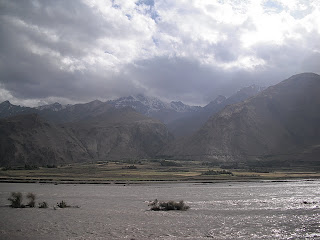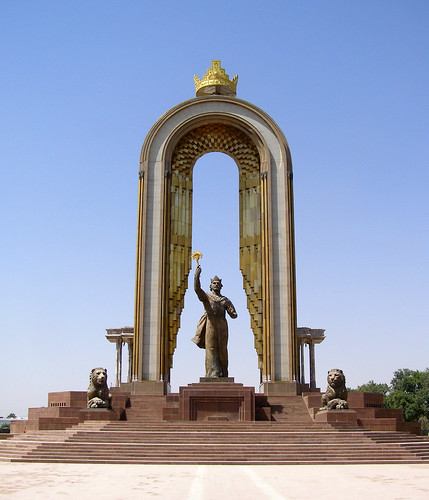"Its snowing in Forli," my roommate said, with some surprise. We were standing in our kitchen making lunch, with the tv news on in the background. Forli is about forty minutes from here, farther south and closer to the Adriatic. If it was snowing there, surely it wouldn't be long before the storm reached Bologna.
I'd just finished the last of my exams. The wonderful but nerve-wracking thing about Italian oral exams is that the professor "verbalizes" the grade - i.e. tells you what it is immediately. "26 [of 30]. No wait, if you can tell me how Liszt is related to programmatic music, I'll give 27," to quote my music professor. The point being, I already knew I'd passed everything. I had four days left in Italy, and I didn't have to spend them in my room drinking gallons (liters?) of tea and trying to memorize the entire history of Latin America. What could I do with my freedom?
Washing up, I glanced out the window. Snow. Absolutely no doubt about it. Snow! "Giulia, sta nevicando! [its snowing]" "Grazie, Anna," my roommate laughed at me, but I didn't care. I wanted to immediately run outside, like a five year old, and spin around in circles in the courtyard.
By the time I'd found my gloves and got outside, though, the sun was back out. But there was just the fainted coating of snow on the cars in the street. I decided there couldn't be a better moment to do the most touristy thing Bologna had to offer. Though I've been here three and a half months, I still hadn't climbed the tower. Le Due Torri, or the two towers, are at the heart of Bologna, and I walked past them almost everyday, but I had never been to the top.
 |
| the Torre strung with Christmas Lights |
There is a superstition that if a student climbs to the top before they have finished their studies, they won't graduate. Now, I don't usually believe in this kind of thing - I'm pretty sure I stepped on all the "stones one is never supposed to step on" at Yale in the first week of class, before I knew any better (though if I somehow flunk out in my senior year, we'll know why). Nonetheless, I had waited, but now that I was finished with the exams, there was nothing to hold me back.
I'm actually so glad I chose today. Not only did the city look breathtaking with the snow on the roofs, the view was better with familiarity. I could pick out all the streets and buildings I walk by, and even see the smoke rising from the chimney of my palazzo. It was a perfect way to realize just how much I have come to know the city, at the same time that I couldn't believe I'd never seen it from this vantage before. It was truly saving the best for last.
 |
| ancient wooden stairs, going up, and up, and up... |
 | ||
Shadow of the tower, and the snow clouds heading north
|
 |
| Bologna la Rossa |





































